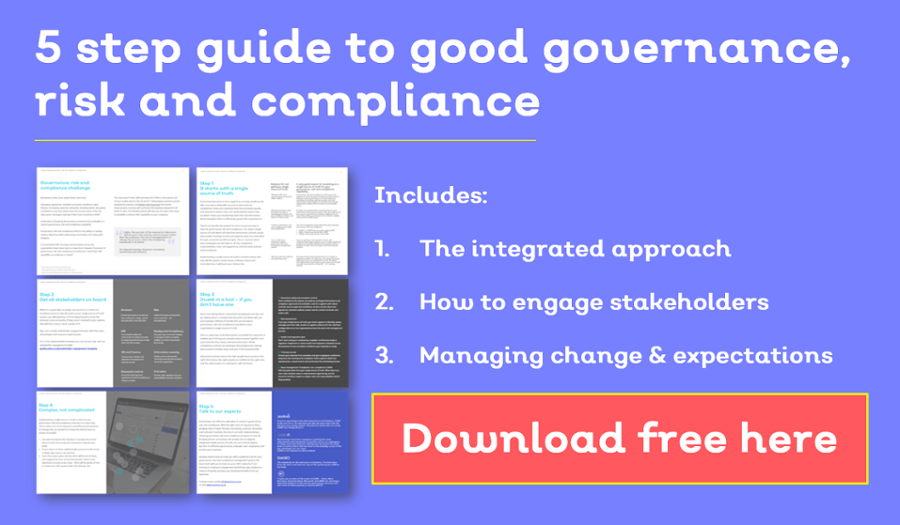Want to contribute to this article?
Robert Asmah loves the quality role.
He pushes for under-recognised ISO standards.
In 2016 he self-funded a trip from his native Ghana to Chicago to complete a Bureau Veritas lead auditing course.
And he's a persistent advocate for quality improvement in an industry he feels is too narrowly focused on profit.
Now General Manager of Technical Services at Ghana Gas, Robert spoke to Qualsys about the lessons he's learned from the oil and gas world, how to fight for resources and recognition, and the crucial role quality professionals have to play in the field.

I saw that there was a window of opportunity.
How to push for ISO
Ghana Gas is the primary national midstream gas organisation for the country of Ghana and its 6 trillion cubic feet of national gas reserves.
The company is kickstarting its ISO journey with ISO 45001:2018 accreditation.
But the journey hasn't been simple. Robert was faced with a problem: how can quality professionals, keen to streamline processes and boost competitiveness with ISO-accredited management systems, start the process if they work in an industry or territory that doesn't generally recognise their importance?
He recommends starting small, by pinpointing the single standard that senior management are most likely to take interest in.
It's not uncommon for quality professionals to map out detailed improvement plans that management won't approve all at once. In Robert's case, an integrated triple approach of ISO 9001, 14001 and 45001 certification was proposed.
But ultimately, it was the health and safety focus of ISO 45001 that caught management's eye and gave Robert a foot in the door.
So use your first ISO standard as a springboard for other changes, bearing in mind that oil and gas business leaders are most likely to approve a health and safety-related project like ISO 45001 - in part, because of the industry's status as one of the world's most dangerous.

Robert delivers a talk on how 'Learning Makes You Young'
at the DEQ Change Foundation 2017 summit
Learn more about the main ISO standards quality professionals are
targeting in 2020 by downloading our Global Quality Trends Report
Leadership and commitment
The bane of quality professionals. If you don't get strong commitment from your business leaders, you can't go anywhere. No matter how passionate you are.
Robert argues that top management in the oil and gas space need to be taught to 'think quality'.
Management meetings and strategies are dominated by output-focused 'operational thinking', with the only concern being products meeting specifications.
For Robert this perspective overlooks process inputs and masks the end-to-end significance of quality - decreasing the quality team's access to resources at the same time.
Persistent championing of quality takes time and effort and means two things:
1) Emphasising the importance of quality from beginning to end and input to output, and
2) 'Monetising' the impact of quality by focusing on the financial benefits of projects like ISO certification
Sometimes a major incident can make both these areas clear for you. In the oil and gas world, it's not unknown for a mid-process design flaw to cost millions of dollars to fix and trigger a sharp rise in insurance premiums for affected businesses.
And the 2010 Deepwater Horizon oil spill not only produced a Hollywood film but the largest corporate settlement in U.S. history, with a $18.7bn fine being levied on BP.
Oil and gas productions are very dynamic, with designs, processes and customer requirements changing all the time.
ISO 9001 8.3 talks about design reviews. If it had been taken on board and quality was treated as part of that change instead of just what the customer sees, mistakes like that could be avoided.

Quality as an intrinsic, continuous process,
rather than an output bolt-on
Internal taxonomies can also reveal whether quality is sufficiently valued - if quality sits within a broader department like operations or maintenance, rather than independently, it's unlikely that sufficient awareness and training exists.
For Robert, this is a key area to focus on.
One of the key issues the industry has to address is the proper relationship between asset integrity management and maintenance.
You can't have proper maintenance if the materials you're trying to maintain weren't properly selected in the first place because of a lack of quality.

Read our interview with Mark Eydman of Six Pillars Consulting:
'How to make your ISO 9001 quality management review shine'
Resources and digital tools
I've been in quality for some time, and to be frank with you the amount of quality tools and software being applied is very minimal in oil and gas, compared to other fields.
As long as they're focused on crude output or gas quantities, everything else is forgotten.
We need to bring these tools out.
Robert argues that overt focus on profit is limiting the potential of the oil and gas world by hampering investment in quality improvement tools and platforms.
But it's no easy task getting leadership to invest - for Robert it begins with working hard to build a team of formally trained, competent quality workers who can go to the boardroom with results.
And with only a limited number of formal quality courses in universities, it's up to quality professionals to make their own way.
I knew that ISO 9001:2015 had just been launched and would be gaining ground in Africa. I saw that there was a window of opportunity.
People think anybody can do quality, but they can't. Once you have a team that can go to top management and say, 'look what we've done', you can start getting access to more resources.
Managers will always appreciate you showing them something on the factory floor that was improved with a quality programme. And eventually they'll start listening to you and you can start training and investing.
Stronger recognition of quality, access to the latest electronic tools and more specialised quality teams are for Robert the key to the future for oil and gas companies.
But it's the responsibility of quality managers to do their research and know how to persuade, if they are to make this change happen.
See how another energy company did it.
Read article: 'The secret of growth in the energy world'

More reading
Struggling with stakeholder engagement?
Need a robust strategy to gain access to new resources for your team?
Try our 5-step GRC strategy guide:










Share your thoughts on this article